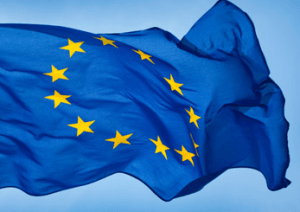Ghana and European Union sign €92.9m financing agreement
 Ghana and the European Union (EU) have signed two grant financing agreement totalling €92.9 million to support the budget and to prevent electoral violence in the northern border regions.
Ghana and the European Union (EU) have signed two grant financing agreement totalling €92.9 million to support the budget and to prevent electoral violence in the northern border regions.
A total of €87 million out of the amount is under the Emergency EU Budget in Response to the COVID Situation in Ghana and the remaining €5.9 million will go towards preventing electoral and communal violence in the Northern Border Regions of Ghana.
This special emergency budget support is a single disbursement to Ghana.
Mr Ken Ofori-Atta, the Minister of Finance, who signed for the government said the funding contributed to the country’s crisis response and would help to address the economic and fiscal impact arising from the COVID-19.
He said the support took cognizance of the shortfalls in government revenue and the unanticipated increases in public expenditure.
“It is our joint expectation that this facility will bolster the on-going effort of Government to mitigate the effects of the pandemic, by supporting the private sector, households as well as the most vulnerable,” he said.
He said the successful framing of these interventions demonstrate the responsiveness and flexibility imbued in the unique relationship that dated back to 1957.
The Minister said as a government, the interest in securing decent standards of living for the people was obvious and it was for this reason that they remain watchful of the transition from the Cotonou Partnership Agreement to its successor Agreement.
“We look forward to a strengthened partnership that will generate mutual benefits in accordance with our shared values,” he added.
He said the government was not only planning for the near and immediate term but has developed the Ghana COVID-19 Alleviation and Revitalisation of Enterprises Support (GhanaCARES) Programme.
The Programme aims to mitigate the impact of the pandemic and to ensure that the country quickly emerges from the pandemic with a stronger and more resilient economy.
He said the programme envisaged strong actions to improve the private sector environment and provide support to Ghanaian enterprises in targeted sectors to accelerate competitive import substitution and export expansion in light manufacturing.
He said to this end, “We have focused on an enhanced role for the private sector, out plan for implementing GhanaCARES seeks the attraction and retention of 70 per cent funding from the private sector sources.”
Madam Diana Acconcia, EU Ambassador to Ghana said, “This action shows the EU’s continued commitment to our partnership with Ghana, especially during these challenging times.”
She said the support was part of the EU’s Team Europe package that combines resources from the common EU budget, the Member States and EU financial institutions.
She said their common objective was to help Ghana respond effectively to the socio-economic impact of the COVID-19 crisis and put in place mitigating measures.
She said team Europe has already mobilised almost €36 billion (the equivalent of GH¢ 243bn) for its global response to the COVID-l9 crisis.
She said the EU, as a global actor and major contributor to the international development cooperation system, promoted a coordinated multilateral response, in partnership with the United Nations, International Financial Institutions, as well as the G7 and the G20.
Simultaneously, the EU also signed a €6 million facility that focuses on preventing electoral and communal violence as well as on providing security to the northern border regions of Ghana.
Its specific objective is to better equip key governmental and mom governmental actors in their joint and coordinated efforts to sustain peace, prevent violence, ensure peaceful electoral process and contain the rise of violent extremism.
Source: GNA
